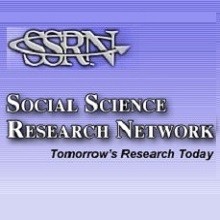
مالیات و کیفیت حسابرسی
چکیده
تاثیرات مالیات در تقریبا هر زمینهی تصمیمگیری در نوشتجات موجود مورد بحث قرار گرفتهاند، اما رابطهی بین مالیات و حسابرسی توجه اندکی را جلب کرده است. ما به کاوش رابطهی بین تلاش حسابرسی، کیفیت حسابرسی، و مالیات از چشمانداز هر دوی حسابرسان و عمومی با استفاده از یک مدل پژوهشی تحلیلی میپردازیم. تجزیه و تحلیل، شواهدی را فراهم میکند که حتی مالیات متقارن دارای تاثیر قابل توجهی روی تلاش حسابرسی و کیفیت حسابرسی هنگامی که گریز از ریسک حسابرسان در نظر گرفته میشود است. در حالی که مالیات دارای تاثیر یکنواختی روی تلاش حسابرسی نیست، کیفیت حسابرسی به طور کلی با کاهش نرخهای مالیات افزایش مییابد. از اینرو مالیات ممکن است مانع تلاشهای قانونگذاران برای بهبود کیفیت حسابرسی باشد. علاوهبراین، ما نشان میدهیم که حسابرسان با کیفیت بالا باید یک موضوع دغدغهی عمومی باشد زیرا هر زمان که یک طرف به طور غیرمنصفانهای از مالیات معاف شود عموم آسیب میبینند. بنابراین، میزان از نظر اجتماعی بهینهای تلاش حسابرسی وجود دارد. ما یک محدودیت بدهی خاص-دستور و خاص-حسابرس را برای دستیابی به سطح از نظر اجتماعی بهینهای از تلاش حسابرسی به دست میآوریم.
1. پیشگفتار
تاثیرات مالیات روی تصمیمگیری در بسیاری از زمینههای مورد بحث قرار گرفتهاند اما به طور شگفتآوری، نه پژوهش مالیات و نه پژوهش حسابرسی روی اثرات مالیات روی کیفیت حسابرسی تمرکز نکردهاند. با توجه به این که حسابرسان معمولا با رژیمها و عملکردهای مالیاتی خاص در محیطهای قانونی پیچیده آشنا هستند، به ویژه حسابرسان ممکن است برای نادیده گرفتن تاثیر مالیات روی تصمیمگیری در نظر گرفته نشوند. در این مطالعه، ما به کاوش رابطهی بین تلاش حسابرسی، کیفیت حسابرسی، و مالیات از چشمانداز حسابرسان و عموم میپردازیم.
Abstract
The effects of taxes have been discussed in almost every decision context in the extant literature, but the relationship between taxes and auditing has amazingly merited little attention. We explore the relationship between audit effort, audit quality and taxes from the perspective of both auditors and the public using an analytical research model. The analysis provides evidence that even symmetric taxes significantly influence audit effort and audit quality when auditors’ risk aversion is considered. While taxes do not influence audit effort monotonically, audit quality generally increases with decreasing tax rates. Hence, taxes may interfere with legislators’ efforts to improve audit quality. Additionally, we show that high quality audits should be a matter of public concern because the public is damaged whenever a party unfairly remains untaxed. Therefore, a socially optimal amount of audit effort exists. We derive a mandate- and auditor-specific liability limitation to achieve a socially optimal level of audit effort.
1 Introduction
The effects of taxation on decision-making have been discussed in many contexts, but amazingly, neither tax or audit research have focused on the effects of taxation on audit quality. Given that auditors are usually familiar with particular tax regimes and practices in complex legal environments, especially auditors may not be considered to neglect the effect of taxes on decision-making. In this study, we explore the relationship between audit effort, audit quality and taxes from the perspective of auditors and the public.
چکیده
1. پیشگفتار
2. آیا مالیات دارای تاثیر روی کیفیت حسابرسی است؟
مدل
نرخ مالیات-ریسک گریزی آستانه
آیا مالیات دارای تاثیر یکنواختی روی تلاش حسابرسی است؟
مالیات و کیفیت حسابرسی
3. مسعول مالی و حسابرسی
تنظیم (محیط) ملی
محیط بینالمللی
4. خلاصه و نتیجهگیریها
منابع
Abstract
1 Introduction
2 Do taxes affect audit quality?
Model
Optimal audit effort and taxes
Threshold risk aversion/tax rate
Do taxes monotonically influence audit effort?
Taxes and audit quality
3 Auditing and the fiscal authority
National setting
International setting
4 Summary and conclusions
- ترجمه فارسی مقاله با فرمت ورد (word) با قابلیت ویرایش، بدون آرم سایت ای ترجمه
- ترجمه فارسی مقاله با فرمت pdf، بدون آرم سایت ای ترجمه
